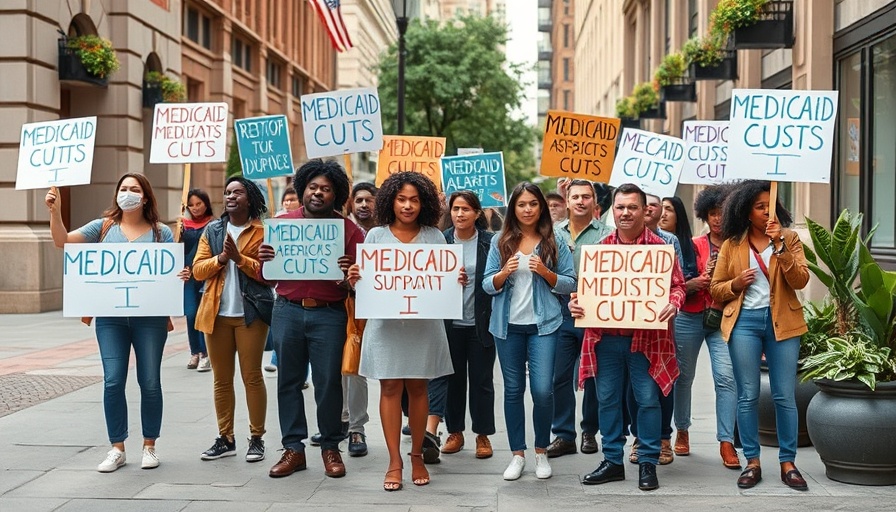
The Potential Impact of Medicaid Cuts in Washington
In a stark warning, leaders at the Community Health Plan of Washington (CHPW) express deep concern over proposed reductions to Medicaid funding. CEO Leanne Berge informed the public that these cuts would not only impact the health and well-being of approximately 300,000 low-income residents in Washington but could also reverberate through the entire healthcare system.
"Medicaid acts as a lifeline for our state’s most vulnerable citizens, including those with disabilities and mental health challenges. Without adequate funding, the consequences could be dire," Berge stated, highlighting the foundational role that Medicaid plays in supporting health services that allow individuals to maintain their livelihoods and families.
About 72 million individuals across the U.S. rely on Medicaid, making it a critical component of the healthcare infrastructure. The fear among advocates and healthcare professionals is that, amid efforts to cut what some officials describe as 'wasteful spending,' the very essence of healthcare accessibility for those in need could be jeopardized.
Understanding the Human Cost of Medicaid Cuts
The implications of reduced funding extend beyond mere numbers. Reporting from across the nation indicates that as federal government officials consider trimming public health programs, those who rely heavily on state sponsorship could suffer immensely. CHPW emphasizes that Medicaid is essential for many who may be one paycheck away from financial difficulties and ultimately losing their health coverage.
“If we strip away support from Medicaid, we’re turning our backs on those families who might find themselves in a life-or-death situation,” Zugeisen stated, pointing out the real-world applications of these cuts. When people cannot afford necessary health services or mental health support, they are forced to rely on emergency services, which can further burden the already taxed healthcare system.
The Broader Implications on Society
Burgeoning worry from Medicaid advocates can’t be understated. The instability brought on by cuts could encourage more people to seek emergency healthcare, leading to additional strain on hospitals and caregivers. Not only would this jeopardize health outcomes for those trying to get by, but it could also escalate healthcare costs overall due to higher rates of hospitalization.
Moreover, access to healthcare isn’t just a personal issue; it reverberates across the economy. A healthy population is crucial for community stability and economic growth. If families struggle to access necessary treatments, productivity sinks, leading to wider societal challenges. This presents a compelling argument for maintaining robust funding in these critical healthcare programs, ensuring the most vulnerable populations are not left to fend for themselves.
Your Role in Protecting Medicaid in Washington
This unfolding situation invites community engagement and advocacy. As residents of Seattle and Washington State, you have the power to influence the discourse surrounding Medicaid funding. Consider reaching out to your representatives to voice your concerns about these potential cuts and the far-reaching consequences they carry.
Medicaid funding is not just a line in the budget; it represents the promise of health and stability for countless families. By advocating for sustainable funding and pushing the dialogue on accessible healthcare, we can pave the way for a healthier future for all.
In the face of daunting changes, let us not forget that our collective voices hold the power to impact policy decisions that directly affect thousands of our neighbors. As we explore and support sustainable living, let's strive to ensure that every Washington resident has the access to healthcare they rightfully deserve.
 Add Row
Add Row  Add
Add 




Write A Comment